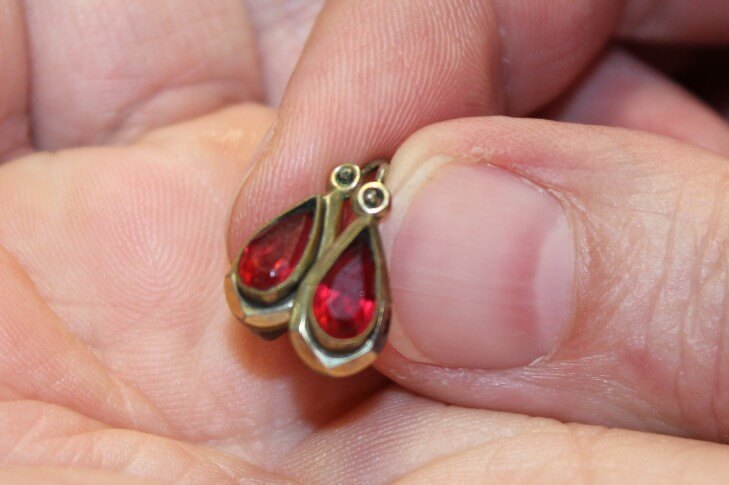“How lovely the earrings must have looked on her.”

A delicate pair of earrings with red stones symbolize the great injustice Helena Poterska suffered. That’s why it was so hard for her daughter Christina Siegl to open the envelope containing them, sent to her by the International Tracing Service (ITS) in June 2018. “It moved me so deeply. It just never seemed to be the right moment.”
The sixteen-year-old Helena was on her way to school when the Gestapo arrested her in November 1941. She never learned why. First they took her to Fort VII in Posen (Poznań), which they used as a prison and transit camp. It was also known as the Posen concentration camp. Then they assigned her to forced labor, initially under halfway humane conditions, painting porcelain. After her deportation to the Ravensbrück concentration camp as a “factory worker” – as it is euphemistically noted in the concentration camp records – she was put to work in the war industry, now as a “political” inmate. On August 31, 1944 the Nazis transferred her from Ravensbrück to the Neuengamme concentration camp, as documents in the ITS archive show. Helena herself thought she was still in Ravensbrück, now in a different subcamp. The suffering was just as bad everywhere. “My mother said she would never forget the screams in the camps. She told us she had been in five different camps.” Christina wrote a letter to the ITS: “All her life, my mother suffered from those lost years, from being snatched away from her family and the life she knew. She was traumatized; there’s no doubt.”
Helena’s earrings found their way from 1941 Posen to her daughter only because the Nazi bureaucracy “functioned” to the very end. They had been forwarded from one site of her persecution to the next until they reached the Neuengamme concentration camp. After 1945, the Allies recovered a proportion of the Neuengamme inmates’ personal belongings in a small town in Schleswig-Holstein. The ITS initiated the #StolenMemory campaign as a means of returning as many of the approximately 3,000 effects stored in its archive as possible. It was in the framework of the research for this project that the ITS team found Helena Poterska’s family.
At the time of her liberation, she was twenty years old. On January 25, 1947 she married Helmut Friedrich Gutleber, whom she had met in Salzgitter. She had been in a DP camp there at the time, he in an English POW camp. They made their way to Würzburg on foot and decided to settle there. Their daughter recalls that at first things weren’t easy for the young Polish woman. “I remember we children had to go shopping for my mother until she became fluent in German. Before that, she met with a lot of rejection. But my father was always proud of my mother for being so brave.”
Christina will show her mother the earrings at a suitable opportunity. Now ninety-four, Helena suffers from dementia, but still has some memories. “I can just imagine how lovely those earrings must have looked on her. She was a very pretty girl.”

